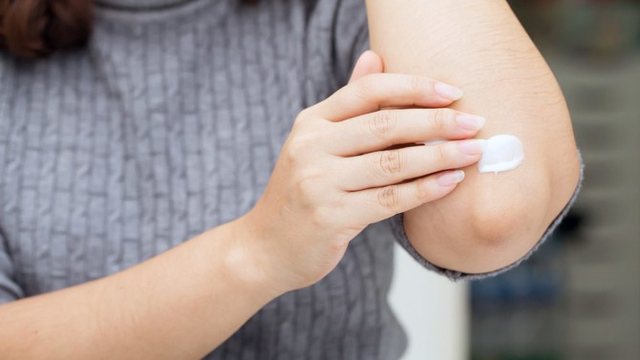
The life of most of us has become stressful, closely related to problems, daily engagements, challenges, unexpected ... All of these are inevitable for many of us and this is a reality.
But, apart from emotional experiences and feelings, one of the organs that suffers most of this condition is just skin. As an "exercise board", there are direct consequences whenever you are suffering from increased stress or anxiety. And these are not transitory signs or that can pass easily, but are such that they may remain for a long time there. Also find out what are the five skin marks that prove you are suffering from anxiety or stress.

A small stress can be good for your body, keeping you mentally sharp and focused. But it can affect your immune system, making you more susceptible to skin infections, such as cold sores, says dermatologist New York City Sumayah Jamal, MD, of the Schweiger Dermatology group. "Stress delays the healing process of the skin by damaging the barrier function or external protective layer," says Josie Howard, MD, a San Francisco psychiatrist specializing in psychodermology. In fact, in a small study that analyzed the skin of medical students during examinations and then after holidays, researchers found that "healing of the wounds was considerably delayed" during the stress tests, Howard said.

A recent study found that high levels of anxiety can drain natural skin moisture reserves. "It can suppress the production of hyaluronic acid, which causes dryness," says Jamal, not to mention that stress and anxiety can also exacerbate conditions for eczema. If you have sensitive skin, "this added loss of water over time can make your skin more prone to having a red and dry appearance," says dermatologist Nowll S. Sherber. Applying super-reliefs with hyalonic acid and ceramide can help compensate for the effects.

Beyond impact on the skin surface, stress can also affect a cellular level. It's all about the telomeres, the protective "hats" found at each end of a chromosome that stores the DNA, says Howard. Over time, these telomeres naturally shorten, and they can cause cellular damage and lead to aging signs (such as wrinkles). Anxiety can accelerate this process. "We see a strong link between shorter telomers and psychological stress," says Howard.

Cortisol, a hormone released in response to stress, is the natural collagen agent, breaking the connective tissue that keeps your tired and strong color. But beyond collagen damage, anxiety "can also make us maintain certain facial expressions, such as brownibing," says Jamal. Eventually, "this can cause permanent wrinkles on the face and around the eyes". And Sherber adds, "the jaw tightness can cause muscle growth, making your face more flat."

Cortisol can stimulate the production of fat as well as cause inflammatory acne, which look like deep bumps along the lower part of the face. Stress can actually make the acne even worse. The reason can be traced back to the microbial, internal bacterial ecosystem. "Stress is known to break down the microbial, which can have extensive effects," says Jamal. When this internal system is thrown out, acne-related bacteria may be more likely to thrive and exacerbate the effects you see in the mirror. Talk to your dermatologist about the best treatment options, which may include the use of relaxation techniques.





